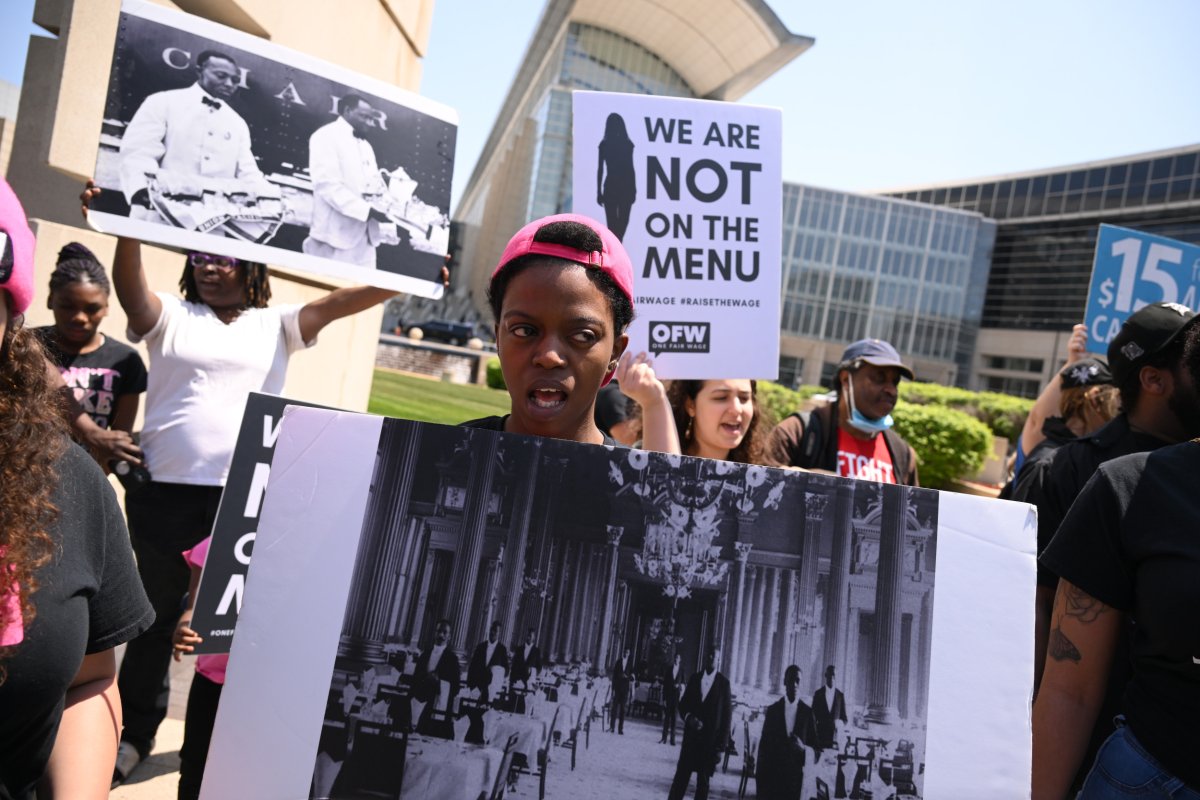In the dead of night, at meat processing plants across eight states, more than a hundred children were using scalding water and hazardous chemicals to clean blood and animal parts from dangerous machines like head splitters and back saws.
At a sawmill in Wisconsin, a 16-year-old boy died after getting pinned in a wood-stacking machine.
In a poultry plant in Mississippi, another 16-year-old boy died in the process of cleaning the facility's equipment.
These horrific cases of child labor are not stories from a hundred years ago. They are not stories from a distant country. They happened here in the United States in just the past year. This must stop. When we go shopping – whether for groceries, gifts, or supplies – we should not have to question if the products were made with illegal child labor.

While we may not all agree on solutions to some of our greatest challenges, we should all be able to come together to unequivocally demand that children in the United States and around the world can grow up safe, healthy, and protected from exploitation.
Let me be clear: youth employment, when done safely and by the book, can be one of the most enriching experiences in a young person's life. That first job often helps young people learn about their strengths, develop their talents, and even ignite passions that will last a lifetime.
But one child working in a hazardous environment is one too many.
That's why the agency I lead—the U.S. Department of Labor—is using all the tools at our disposal to combat child labor exploitation and make sure our economy is in no way built on the backs of vulnerable children.
Under the Biden administration, we are doing everything possible to protect kids and hold employers accountable for violating the law. We're working more closely than ever across the federal government—with agencies like the departments of Agriculture, Education, and Health and Human Services—to keep children out of harm's way. We are also working with foreign and local governments to root out child exploitation globally and in our neighborhoods.
During the last fiscal year, the U.S. Department of Labor found child labor violations in 955 investigations. We found those employers illegally employed almost 5,800 kids, an 88 percent increase in the number of children that the department has found employed unlawfully since 2019. We have more than 800 child labor investigations underway, and we are utilizing our most powerful enforcement tools—including seeking to bar the shipment of goods made in or potentially even around facilities where unlawful child labor was used.
To evade responsibility, many large companies, including some well-known brands, have made their supply chains less transparent. They rely on vendors, sub-contractors, and staffing agencies to perform work at their facilities or make their brand-name goods. These downstream companies may skirt or break the law, cut corners, and pocket the difference. When the jobs they offer are low-quality enough that many adults won't take them, they may illegally hire children instead. But while big brands may outsource jobs, they can't outsource their moral responsibility to keep kids safe. They may face legal liability as well, and in those cases, my agency will seek to hold them accountable.
Across the Biden administration, we are calling on companies profiting from child labor to take responsibility for the egregious, sometimes deadly harm inflicted on children throughout their supply chains. There is a wealth of best practices, industry examples, and resources to learn from. Companies can establish and maintain robust compliance systems using the Department of Labor's comprehensive "Comply Chain" tool. They can raise and enforce standards for their suppliers and subcontractors. They can bring more jobs back in-house to ensure better oversight. To be successful, companies must also view job quality as a key factor in preventing labor exploitation throughout their supply chains.
Everyone must do their part to protect children and end the scourge of child labor as we know it. President Biden has a request to fund these labor-intensive investigations, so lawmakers in Washington must come to the table in support of these efforts. Businesses also have an unmet obligation to respect the dignity of their workers and protect the innocence of children. Our kids and our communities deserve better.
Julie Su is the acting secretary of Labor, a post she has served in since March 11, after previously having served as deputy secretary since July 13, 2021. She is a nationally recognized expert on workers' rights and civil rights who has dedicated her distinguished legal career to advancing justice on behalf of poor and disenfranchised communities.
The views expressed in this article are the writer's own.
Uncommon Knowledge
Newsweek is committed to challenging conventional wisdom and finding connections in the search for common ground.
Newsweek is committed to challenging conventional wisdom and finding connections in the search for common ground.
About the writer
To read how Newsweek uses AI as a newsroom tool, Click here.






